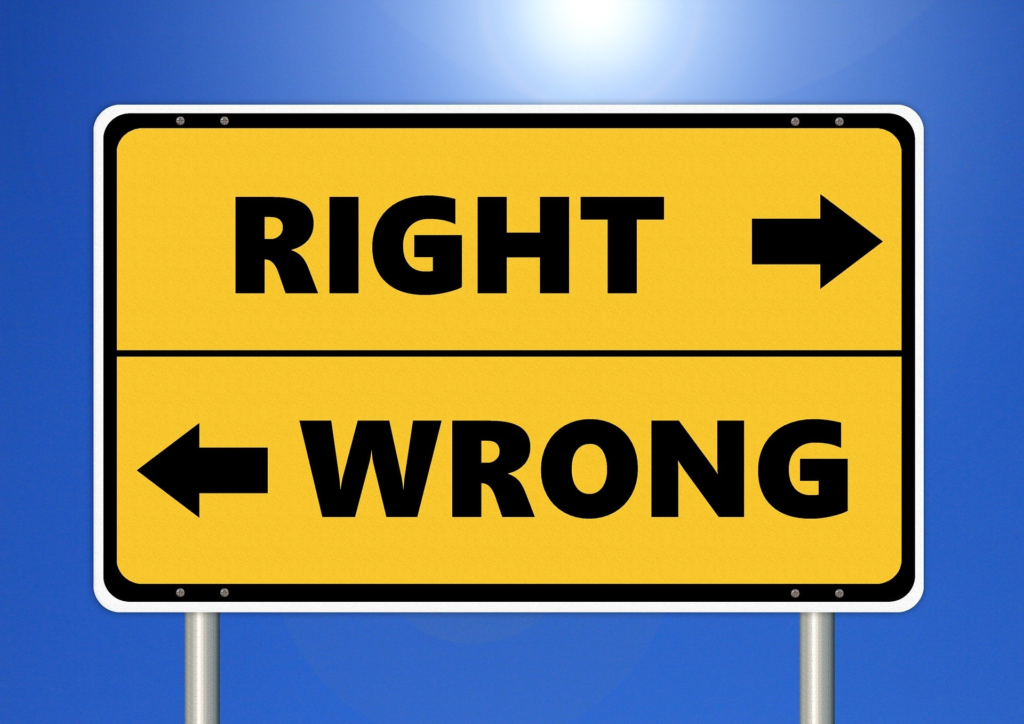Definition of business ethics: A strand of applied ethics, which explores moral dilemmas and ethical decision-making in a business context.
What is business ethics?
Business ethics is a practical branch of the philosophy & ethics sphere.
The pressure, competition and financial incentives of the world of business produce a continuous source of ethical dillema and personal challenges.
Business ethics helps to examine these issues in with a practical mindset.
Does ethics have a place in business?
At first glance, businesses may appear to have little incentive to follow an ethic or righteous path when making decisions:
- Successful business people are often characterised as ‘cut-throat’ or ‘ruthless’. This gives a strong implication to everyone as they grow up, that a consistently unethical approach to business dealings is optimal. Many business books and entrepreneurship books create this impression through case studies of historical business leaders.
- A profitable business must maintain a gross margin in the face of intense competition. In such an environment, it could be expensive to begin applying ethical decision making, as this typically involves providing more resources to other stakeholders.
- Business managers work on behalf of shareholders, who have bought shares apparently for the sole purpose of generating a return on investment. Shareholders are often pensioners, who rely upon that income to maintain a reasonable quality of life. This gives a justification for managers to act in an unethical manner to maximise the return to these vulnerable groups.

Why it can be profitable to be ethical
There are actually a large number of reasons – some more nuanced than others – which reward ethical behaviour in business. Here’s a sample:
Unethical businesses struggle to hire workers
Employees, particularly millennials, exclude unethical businesses from their job searches, and in doing so, completely starve these businesses from attracting the best talent. Being able to pick from the best employees is vital for a business that wishes to outperform the competition – it’s a great asset.
Unethical businesses lose bids
While bidding activity is a source of ethical dilemmas (for example, around bribes and other illegal activity), it is also a process through which unethical businesses are penalised.
In requests for proposals, government organisations and other ethical companies have begun to feature scoring systems that rate suppliers based on many indicators of ethical conduct. These include:
- Use of small supplier & independent contractors
- Environment impact
- Stakeholder interaction
This means that a business which breezes over such ethical matters will score poorly in this area when bidding for work.
Goodwill is a valuable thing
While Hollywood may give the impression that screwing over your suppliers, customers and employees is the holy grail for achieving riches – this isn’t true.
Social media gives customers and employees a platform to voice their concerns. Consider this story, where a UK restaurant which was accused by employees of withholding their pay when customers left without paying. After the resulting firestorm, they changed their policy. Bad ethics leads to bad PR.
Being seen to be ethical can gild the brand of a business too. With over a third of customers cutting back or eliminating meat from their diet altogether, it’s easy to see that consumers are being more picky about what products they put in their basket.
The rules are the rules
Laws and regulations are tightening over time, to encourage ethical behaviour with all stakeholders. Some recent examples include:
- UK Companies must disclose how promptly they pay their small suppliers, to address complaints of cash-rich giants holding back on payments to further improve their own cash flow.
- Modern slavery regulations also state that businesses cannot ‘outsource’ their responsibility of ensuring that employment practises are legal.
Rules like these increase the risk that regulatory liabilities or further reputational damage will occur if a business doesn’t stick to the straight and narrow.
How does the definition of business ethics relate to investing?
Ethics and investing is an emerging area. Ethical or socially responsible investing is about ensuring that your capital is not being used to fund unethical activity. This might be:
- Corporations which are involved in the burning or mining of carbon fuel
- Businesses who manufacture opiates, firearms, cigarette or other inherently harmful influences.
- Businesses with a terrible environmental impact, or a poor attitude towards taking steps to tackle climate change.
- Corporations with a poor track record on child labour or other abuses.
- Groups who have a policy of evading tax through aggressive means.
Stocks & Shares ISAs such as Nutmeg make it easier to become an ethical investor, as they offer an ethical investment product as part of their line-up.
Companies can be scored on the basis of their social & environmental impact, and in this way, an investment portfolio can be ‘scored’ which gives a helpful way for investors to pick funds or pick shares that do more for the world.
The best books about financial planning will usually ask you to set ethical targets and boundaries upfront, before you craft an investment portfolio. Investing ethically means comparing UK stockbrokers to find those partners which will help you achieve that goal.
What’s the impact of ethical investing?
This is a good question. Many keen readers will be already wondering:
‘If most buying and selling of shares is simply between shareholders – how does ethical investing impact business?’
The answer is that higher demand for a companies shares leads to a higher share price, which results in a lower cost of capital when that business seeks to raise more equity finance, or even when they issue debt capital such as bonds or debentures.
In short, ethical businesses will have better access to the ultimate finite resource – money. And unethical businesses will find it relatively difficult.